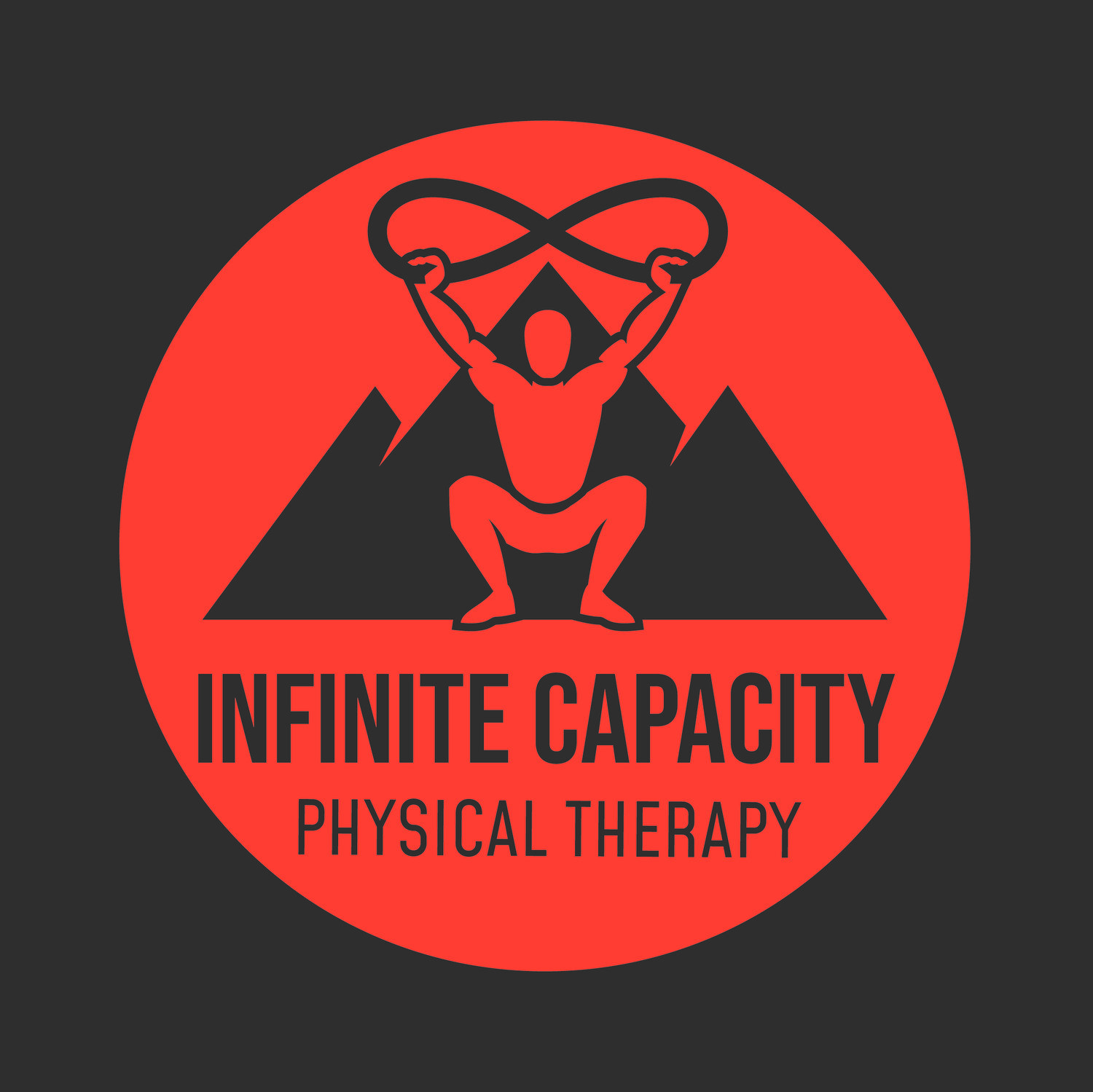Building Core Strength for Better Performance, Stability, and Injury Prevention
If you’ve ever been told to “engage your core” during a lift but weren’t quite sure what that meant—this post is for you.
At Infinite Capacity Physical Therapy, we help CrossFit and functional fitness athletes in Portland, South Portland, Scarborough, and surrounding areas improve core strength so they can lift heavier, stay injury-free, and perform their best—inside and outside the gym.
Let’s talk about what your core actually is, why it matters, and how you can build a stronger one.
🧠 What Is “The Core,” Really?
When we say “core,” we don’t mean just your abs.
Your core includes:
Abdominals
Obliques
Low back muscles
Diaphragm (the breathing muscle)
Pelvic floor (in both males and females)
the Glutes and Hip Flexors can also be included due to their role in moving and stabilizing the pelvis
Together, this group of muscles forms a cylinder of support around your spine, pelvis, and hips. Think of it as your body’s natural weight belt.
💪 Why Core Strength Matters for Lifters
Strong core = better performance AND fewer injuries.
In CrossFit and functional fitness, a strong core helps you:
Brace properly during squats, deadlifts, and Olympic lifts
Transfer power from your midline to your legs and arms efficiently
Maintain control and balance during gymnastic movements
Reduce the risk of low back pain and pelvic issues
Whether you're training CrossFit or training for a triathlon, a solid core is your foundation for progress.
🚨 Common Signs Your Core Isn’t Doing Its Job
Your back hurts during or after lifting
You arch your back during overhead movements
You struggle to maintain midline stability under fatigue
You “leak” power, urine, or gas during lifts or feel unstable under load
Sound familiar? That’s your body telling you it’s time to dial in your core work.
🏋️♀️ 3 Core Training Tips for CrossFit Athletes
1. Train Core Stability, Not Just Functional Movements
Focus on movements that teach your body to resist movement, like:
Dead bugs
Bird dogs
Plank variations
Pallof presses
These build strength that transfers directly to lifts.
2. Integrate Breathing and Bracing
Learning to breathe and brace through your belly —not your chest—creates 360° tension. This protects your spine and improves power output.
If you're not sure what this feels like, we teach this technique during workshops and in 1-on-1 sessions at our South Portland clinic.
3. Train Anti-Rotation & Single-Sided Stability
Lunges, suitcase carries, and single-arm kettlebell holds challenge your core in a functional, real-world way. These help you stay stable when the workout gets fast and heavy.
🩺 What We See at Infinite Capacity PT
Many of the athletes we treat come in with low back pain or nagging hip issues. Often, the root cause is a lack of core muscle strength and/or endurance.
We help athletes across Portland, Falmouth, South Portland, Scarborough, and Cape Elizabeth:
Identify weak points
Improve bracing techniques during functional movements
Build a core that supports high performance
Whether you’re recovering from an injury or looking to PR your lifts, we’re here to help.
🎯 Ready to Build a Core That Works As Hard As You Do?
You don’t need more crunches or kegels—you need a plan.
✅ At Infinite Capacity Physical Therapy, we help athletes build true core strength for long-term success.
blog archive
-
November 2025
- Nov 24, 2025 How to Fix Knee Pain from Squats (Without Stopping Your Training) Nov 24, 2025
- Nov 17, 2025 Lifting Heavy with Confidence: Pelvic Muscles Training and Strategies for Athletes Nov 17, 2025
-
October 2025
- Oct 27, 2025 Youth Baseball Strength Training: Building Power & Protecting Arms Oct 27, 2025
- Oct 13, 2025 Why Rest Isn’t the Answer for Most Injuries Oct 13, 2025
-
August 2025
- Aug 12, 2025 The Performance Rehab Approach: Train Through Injury, Not Around It Aug 12, 2025
- Aug 5, 2025 Preventing Shoulder and Elbow Injuries in Youth Baseball Players Aug 5, 2025
-
July 2025
- Jul 29, 2025 Why Most Back Pain Rehab Fails Athletes—And What Works Instead Jul 29, 2025
- Jul 22, 2025 Understanding the Root Cause of Youth Throwing Injuries (And Why Rest Isn’t Enough) Jul 22, 2025
- Jul 15, 2025 The Hidden Cost of Lingering Shoulder Pain in Training (And How to Fix It for Good) Jul 15, 2025
- Jul 1, 2025 Pelvic Floor Dysfunction: The Hidden Limiter in Functional Fitness Jul 1, 2025
-
June 2025
- Jun 24, 2025 Why Active Recovery Days Matter More Than You Think Jun 24, 2025
- Jun 17, 2025 What We’ve Learned Visiting Local CrossFit Gyms Over the Past Year: A PT’s Perspective Jun 17, 2025
- Jun 10, 2025 Understanding and Managing Knee Pain During Squats Jun 10, 2025
- Jun 3, 2025 Building Core Strength for Better Performance, Stability, and Injury Prevention Jun 3, 2025
-
May 2025
- May 27, 2025 Should I Push Through or Rest? A CrossFit Athlete’s Guide to Listening to Your Body May 27, 2025
- May 20, 2025 Top 5 Mobility Drills to Prevent Shoulder Injuries in CrossFit May 20, 2025
-
August 2023
- Aug 31, 2023 The 4 Keys to Mastering Mobility Aug 31, 2023
-
April 2023
- Apr 28, 2023 Nutrition for Injury Recovery and Rehabilitation Apr 28, 2023
- Apr 27, 2023 Nutrition for Performance and Recovery from Exercise Apr 27, 2023
-
August 2022
- Aug 11, 2022 Shoulder Pain with Push Ups and Dips Aug 11, 2022
-
April 2020
- Apr 23, 2020 Paving the Path to Running: Part 4- Tracking Volume and Load Apr 23, 2020
- Apr 6, 2020 Paving the Path to Running: Part 3- Stretching, Warm-up, and Cool-down Apr 6, 2020
-
March 2020
- Mar 30, 2020 Paving the Path to Running: Part 2- Strengthening Mar 30, 2020
- Mar 23, 2020 Paving the Path to Running: Introduction and Part 1 Mar 23, 2020


